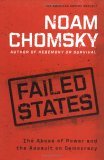Head-to-Head Learning
Yesterday I wrote about over-your-head learning, and said that can only get you so far.
One way to go further is head-to-head learning.
In a nutshell, it's hearing both sides of an argument fully before arriving at a conclusion. Not so revolutionary, but there seems to be a dearth of it in a soundbite-driven cultue.
"What do you think of the war?"
Last year, Sandra asked what I thought of the war in Iraq.
I had to admit I had very little clue, because I have very little real knowledge of the real situation.
Instead, I've got what I guess most people have - sound bite arguments for and against.
For:
- Saddam was a bad man who killed many people.
- The world is safer now he's not there.
- What if the US had not gone to war in World War II?
- War is bad because people get killed.
- There were no Weapons of Mass Destruction.
- George Bush is stupid, evil and goofy.
Anyway, I thought I'd best get some in-depth education, so I read two books, one for each side of the argument.
For the War

The Case For Democracy: The Power of Freedom to Overcome Tyranny and Terror
It's written by Natan Sharansky, a former Israeli cabinet minister and, before that, a refusenik dissident in the Soviet Union who was imprisoned and tortured under that regime. He speaks with great passion about the difference between a free society, like America, where you can express your dissenting opinion freely, and a "fear society" like Iraq under Hussein, where dissent voices are muted, imprisoned or killed.
Against the War

Failed States : The Abuse of Power and the Assault on Democracy
Its author, Noam Chomsky, is an outspoken critic of US Foreign Policy. I'd heard of him previously in the documentary The Corporation, and also by him being described as dangerous by, I believe, the National Business Review.
He's used to being disagreed with, apparently, and his book is extensively footnoted with research into the sometimes quite shocking accusations he's making against America - interestingly, not just the George W Bush regime, but against American foreign policy dating back to 1819!
Unexpected Harmony
I'm using these books as examples of head-to-head learning, assuming that they're diametrically opposed. They are in terms of their conclusions about the US occupation of Iraq, but in terms of base ideas they harmonise remarkably. Both books agree that a genuinely free, democratic society is the most desirable way to achieve national prosperity and global security today.
My Take
So what am I to make of this head-to-head learning??
I'm definitely against a war waged on the basis of a lie. In that respect I take Chomsky's side. But I disagree with him that the longer America stays in Iraq, the more dangerous it is for America and the world. If America is actually helping the fledgling Iraqi government achieve and maintain control of their own backyard, let's not get them out until they're finished doing that job.
Of course, this is not my set-in-concrete position. Opinions based on current affairs must always be subject to what happens in those current affairs.
Happy Independence Day
Whoever's right, Chomsky or Sharansky, it highlights the importance of the democratic values that the Revolutionaries fought for 230 years ago. If you're reading this in the USA, may I wish you a heartfelt happy fourth of July!


0 Comments:
Post a Comment
<< Home